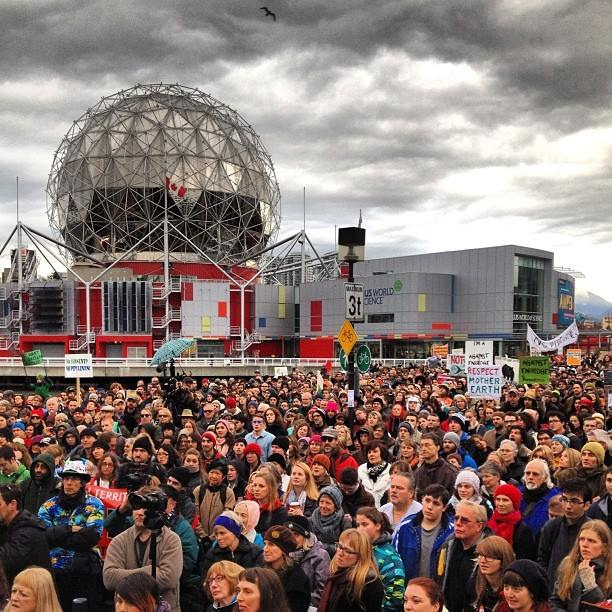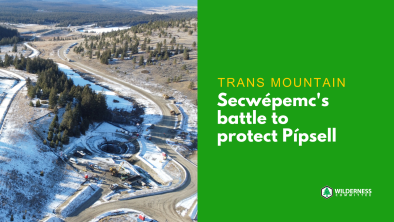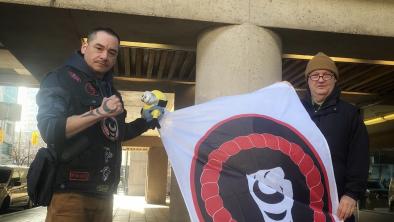Why May 10 is a critical day to defend our climate

The Georgia Straight
By Torrance Coste and Caitlyn Vernon
May 5, 2014
As the scientific evidence has mounted, public recognition of climate change as the main environmental challenge of our time has increased dramatically in recent years.
And yet our political leaders appear not to have recognized this reality. Instead, they are looking to move us in the opposite direction, toward more fossil fuel exploitation and accelerated global warming.
Ottawa champions fossil fuel infrastructure like it will never go out of style—pushing the Kinder Morgan Trans Mountain and Enbridge Northern Gateway pipeline and tankers proposals while completely disregarding the greenhouse gas emissions that would result from these projects.
In B.C., the provincial government is racing to get to the fossil fuel party before it goes bust, pinning our economic future on extreme energy that makes no economic or ecological sense, and that takes vast amounts of energy and water to produce. The government’s plans to frack, liquefy, and export billions of tonnes of gas from B.C.’s northeast will make it impossible to meet our provincial carbon-reduction targets.
The reality is, when we export fossil fuels, we are importing climate disaster. Yet our governments ignore these concerns, reject scientific evidence, and demonize even the most rational objections to their agendas.
Fortunately, most folks aren’t buying this.
A recent poll found more than three-quarters of British Columbians feel we should transition away from fossil fuels to cleaner sources of energy in order to prevent climate change from getting worse.
We know that climate change is a real crisis, and we have a deep responsibility to curb our emissions and commit to new energy sources.
This is not just an environmental issue: it is becoming clearer that by changing our climate we are hurting businesses and local jobs, and that it is possible to sustain strong, stable economies that aren’t based on environmental degradation.
When we see our country turning into a petrostate, and our climate sliding into chaos, with all the accompanying social and environmental upheavals, do we respond politely and hope that things improve? Or do we respond with the moral outrage that the youth of today are demonstrating?
Student movements are the moral compass of our time, calling for all of us to divest from fossil fuels and inspiring municipalities and university campuses across North America to follow their lead. Most recently, 160 faculty members at the University of Victoria joined the call for the university to divest from fossil fuels.
The growing demands for climate action join the strong opposition to pipelines and tankers that would threaten salmon-bearing rivers and the B.C. coast. These projects are all about spills: what doesn’t spill into the rivers or oceans will spill into the atmosphere when it reaches its destination and is burned.
We are living in a critical time, one in which our choices have a disproportionate impact on our future.
But with the growing diversity and numbers of people speaking out against pipelines and advocating for climate justice and solidarity with indigenous peoples, this is also an exciting time. Our choices and actions can make a real difference.
The federal government will be making a decision by June to reject or approve Enbridge’s Northern Gateway pipeline and tankers. First Nations have already said no. B.C. municipalities have said no. The B.C. government has said no, that “trust us” from Enbridge is not good enough, and that effective oil spill clean-up is impossible under many scenarios on the B.C. coast. Most recently, the residents of Kitimat—who stand to gain the only long-term jobs from the pipeline—said no. A majority of British Columbians consistently say no.
There is no question that this emphatic opposition is giving our governments pause. But will the federal government listen to the people of B.C.? We cannot let up. Now is the time, before they make their decision, to send a reminder that no means no.
May 10 is a national day of action. In Victoria, join us for a family gathering at the Beacon Hill Park bandshell, which will include music, face-painting, and other entertainment. From there we’ll march to the legislature for a rally. Afterwards, we’ll hold discussion groups and organizing sessions to connect and strategize and build a strong, diverse movement that can stand up for climate justice this year and beyond. In Vancouver, there is a rally at 2 p.m. at Sunset Beach, and there are other events throughout B.C. and across Canada.
Let’s kick off this summer by standing together with a clear and powerful message: projects that will exacerbate climate change and threaten this coastline are unacceptable—we won’t let Canada become an exporter of climate disaster. We can do better.
Caitlyn Vernon is campaigns director at Sierra Club B.C. Torrance Coste is Vancouver Island campaigner at the Wilderness Committee. Visit defendourclimate.ca for more on the national day of action, and to find an event near you.
Photo: Crowds flocked to Science World in Vancouver during the Defend Our Climate National Day of Action in November 2013. (Zack Embree)


